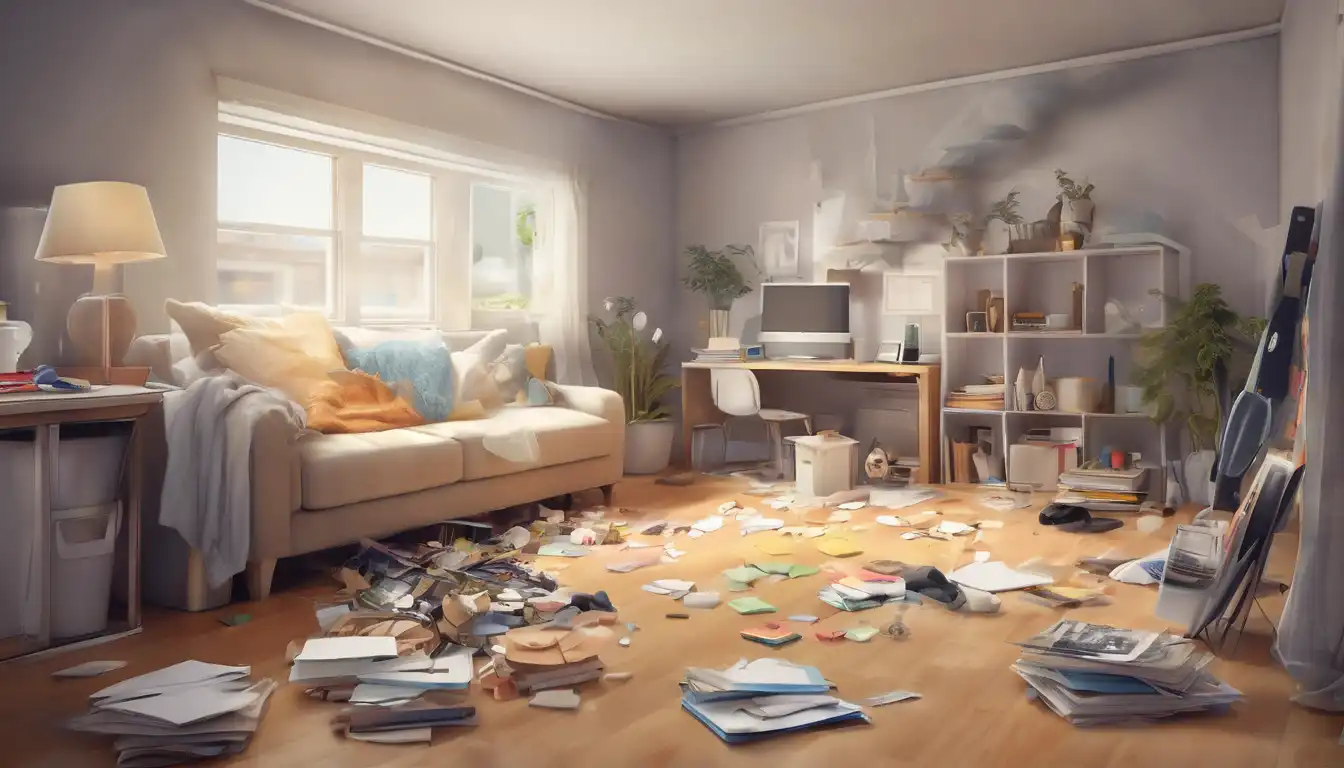Transform Your Space: The Ultimate Guide to Quick Decluttering
Feeling overwhelmed by clutter? You're not alone. Many homeowners struggle with maintaining an organized space, but the good news is that decluttering doesn't have to be a monumental task. With the right approach, you can transform your home from chaotic to calm in just a few hours. This comprehensive guide will walk you through proven strategies that make decluttering efficient, effective, and surprisingly satisfying.
Why Decluttering Matters More Than You Think
Before diving into the practical steps, it's important to understand why decluttering is worth your time. A clutter-free home reduces stress, saves time searching for items, creates more functional living spaces, and can even improve your mental clarity. Studies show that organized environments contribute to better focus and reduced anxiety. Plus, you'll discover items you forgot you owned and create space for what truly matters.
Preparation: Setting Yourself Up for Success
Proper preparation is the foundation of efficient decluttering. Start by gathering essential supplies: sturdy boxes or bins for sorting, garbage bags, cleaning supplies, and labels. Choose a specific area to begin—whether it's a single drawer, a closet, or an entire room. Set a realistic time limit (2-3 hours is ideal for most spaces) and put on some energizing music to keep your momentum going.
The Four-Box Method: Your Decluttering Secret Weapon
This proven system simplifies decision-making. Create four categories: Keep, Donate/Sell, Trash/Recycle, and Relocate. As you go through each item, ask yourself these key questions: Have I used this in the past year? Does it bring me joy or serve a practical purpose? Would I buy this again today? Be honest—if you're keeping things out of guilt or "just in case," you're defeating the purpose of decluttering.
Room-by-Room Decluttering Strategies
Kitchen Decluttering Made Simple
The kitchen often becomes a catch-all for miscellaneous items. Start with expired food and duplicate utensils. Group similar items together and assess what you actually use regularly. Consider implementing our kitchen organization system for long-term maintenance. Remember: counter space is prime real estate—keep only frequently used items visible.
Mastering Bedroom Organization
Begin with your closet using the reverse hanger trick: turn all hangers backward, and after six months, donate anything still facing backward. Tackle nightstands and under-bed storage systematically. For sentimental items, take photos rather than keeping physical objects. This approach preserves memories without occupying physical space.
Living Room Quick Fix
Focus on surfaces first—coffee tables, shelves, and entertainment centers. Implement the "one in, one out" rule for new acquisitions. Use attractive storage solutions that double as decor. Our guide to living room storage solutions offers creative ideas for hiding clutter while maintaining style.
Overcoming Common Decluttering Challenges
Many people struggle with sentimental items or fear of making wrong decisions. For sentimental objects, consider taking photographs or keeping one representative item rather than the entire collection. If you're unsure about an item, place it in a "maybe" box with a date six months from now—if you haven't needed it by then, it's safe to let go.
Maintaining Your Decluttered Space
The real challenge isn't decluttering—it's maintaining your organized space. Develop daily habits like the "5-minute tidy" before bed. Implement systems that make organization effortless, such as labeled bins and designated homes for frequently used items. Regular mini-decluttering sessions (15 minutes weekly) prevent buildup and make the process much less daunting.
Digital Decluttering: Don't Forget Your Virtual Space
While focusing on physical clutter, remember that digital clutter can be equally overwhelming. Set aside time to organize computer files, clean up your email inbox, and delete unused apps from your phone. A digital cleanup can surprisingly contribute to mental clarity and productivity.
When to Seek Professional Help
If you're dealing with extreme clutter or emotional attachments that prevent progress, consider consulting a professional organizer. They provide objective perspectives and specialized strategies. For those interested in deeper organizational systems, explore our professional organizing resources for additional support.
The Psychological Benefits of a Decluttered Home
Beyond the physical space, decluttering offers profound psychological benefits. Many people report improved sleep, reduced anxiety, and increased productivity after decluttering. The process of letting go of physical items often translates to emotional release, creating space for new opportunities and mental clarity.
Getting Started Today: Your Action Plan
Don't wait for the "perfect time" to begin—start with one small area today. Set a timer for 15 minutes and see how much you can accomplish. Remember that progress, not perfection, is the goal. Each item you decide on brings you closer to the organized, peaceful home you deserve. For ongoing support, join our 30-day decluttering challenge to maintain momentum.
Decluttering is more than just cleaning—it's about creating a home that supports your lifestyle and well-being. By implementing these strategies consistently, you'll not only transform your space but also experience the freedom that comes with letting go of unnecessary possessions. The journey to an organized home begins with a single decision to start.
